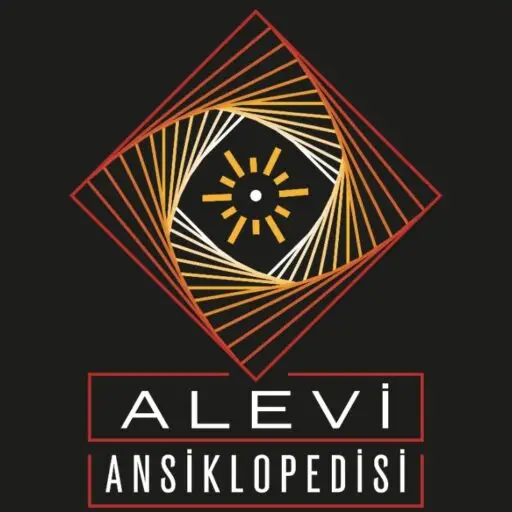Social Justice and Alevis: Multidimensional Identity, Forgiveness, and Solidarity
A Dynamic and Humanist Belief System in Alevism
Alevi beliefs and philosophy, like other religious traditions, should not be understood as static or fixed. Instead, they represent a dynamic set of historical practices that continually adapt to sociopolitical context and history (Dressler 2022). Central to Alevism are values of nonviolence, freedom, and love, which are reflected in both its philosophy and practices. As a faith, Alevism does not preach gender-based discrimination; its sacred texts avoid gendered language and instead use the unisex term “can,” which “refers to the body with the life force and breath it contains” (Deniz 2019, 46). Alevism preaches nonviolence and particularly opposes violence in the name of religion or spirituality and views all life as “a reflection of the divine, with living bodies being temples to God” (Deniz 2019, 46). Harming another person is therefore considered the same as harming the divine. Importantly, these representations of Alevism as a humanist and peace-centred tradition are shaped in part by their opposition to Sunni Islam, the tradition most present and salient for Alevis in Turkey.
Given the central role of humanist values in Alevi identity, it is important to consider how this identity shapes responses to intergroup conflict. Two important outcomes of identity are collective action and forgiveness. Previous work has used a common human identity as a means to unite victims and perpetrators of historical atrocities (Greenaway et al. 2011; Wohl and Branscombe 2005). Using a human categorization improved intergroup attitudes and victims’ willingness to forgive perpetrators. The research did, however, also show that victims’ willingness to engage in collective action on behalf of their group decreased with a shared humanity categorization.
Across three studies (Uluğ et al. 2025a), we first tried to understand whether making common human identity salient affects forgiveness of perpetrators or collective action intentions among Alevis. In Study 1 (N = 222), we did not find any support for the idea that making common human identity salient increases Alevis’ forgiveness of Sunnis or lowers their collective action intentions for their own group. In Study 2 (N = 164), we conducted the same experiment and asked an open-ended question about norms associated with Alevism. The experimental results were the same as in Study 1: there was no support for making common human identity salient, which increases Alevis’ forgiveness of Sunnis or lowers their collective action intentions for their own group. We also found that Alevism was frequently associated with being a humanist. Being tolerant, peaceful, and doing no harm were other norms that were frequently associated with Alevism. Study 3 (N = 183) tested the role of Alevis’ humanist norms as a potential moderator of the inclusiveness effect. Again, we found that making common human identity salient did not affect forgiveness or collective action intentions, nor did Alevism norms moderate this effect. This humanist norm together with other norms that emphasise reconciliation and peace may help explain why appealing to common humanity was unsuccessful among Alevis. Thus, our results may point to why appealing to common humanity manipulation may not work with Alevis.
After conducting these experimental studies, we wanted to conduct a qualitative study to understand (1) why forgiveness is one of the most important values of Alevis, (2) why the same Alevis choose to be forgiving towards those who oppress and persecute their own group while they do not remain silent against injustices in general and (3) whether the fact that Alevis generally have forgiving values has any positive or negative consequences for them (e.g., on their mental health, happiness; Uluğ et al. 2025b). Using open-ended questions, we gathered data from 164 Alevi participants through both online and paper-pencil formats. The results highlight that Alevis see forgiveness as a cultural and moral value with strategic uses-particularly in navigating historical trauma and minority status-but also as a process that can impose emotional burdens if lacking justice and accountability. While forgiveness fosters inner peace and aligns with Alevi teachings of nonviolence, many participants also stress that genuine forgiveness must include recognition of wrongdoing and cannot serve as a substitute for justice.
These findings seem to point to the need to better understand Alevi identity, not as a singular construct, but in the different ways it may be construed by individuals, which could lead to different intergroup-related outcomes. While nearly all Alevis will identify as Alevis, the way that Alevism is reflected in their lives differs to a great degree. Previous research (PODEM 2016; Tekdemir 2017; Tol 2009) suggests three broad identity orientations among Alevis: religious, cultural, and political. Some Alevis see their faith as purely religious and will live their lives based on those tenets, such as fasting or participating in religious services. For others, it is more about cultural heritage and shared values. Still, others view it through a political lens, shaped by historical marginalization and expressed through collective action on behalf of Alevis. These perspectives are further shaped by intersecting ethnic and regional identities (PODEM 2016), creating a diverse and at times, conflicting internal landscape. As the visibility of Alevis in the public sphere grows, these internal struggles become more nuanced. Different perspectives clash as they vie for a more unified public image, though all these different facets of Alevism still touch on historical and contemporary politics.
Knowing that Alevis have varied interpretations of their identity, do these differences influence how they approach and understand the conflicts and persecution of Alevis? Specifically, we explored how sub-identities affect collective victimhood �� a belief about violence targeting the group (Vollhardt 2015). Victimhood beliefs shape intergroup relations: some see their group’s suffering as unique (exclusive victimhood), while others relate it to broader histories of oppression (inclusive victimhood), which can influence reactions to conflict (Uluğ et al. 2021).
We conducted three studies to examine how Alevi identity relates to beliefs about collective victimhood, forgiveness, and collective action (Acar et al. 2025). In Study 1 (N = 230), stronger overall Alevi identification predicted less forgiveness and more activism through both inclusive (i.e., how one’s ingroup’s victimization is perceived to be similar to other groups who have experienced victimisation) and exclusive victimhood beliefs (e.g., how one’s ingroup’s victimization is perceived to be unique and distinct). In Studies 2 and 3 (Ns = 178; 269), we looked at religious, political, and cultural dimensions of identity. Religious identity predicted more exclusive (but not inclusive) victimhood and was unrelated to forgiveness or activism. Cultural identity was linked to greater activism but not to victimhood beliefs or forgiveness. Political identity predicted higher inclusive and exclusive victimhood, more activism, and less forgiveness.
The findings of our studies highlight the complexity of Alevi identity, revealing how its religious, cultural, and political dimensions shape distinct responses to collective victimhood, forgiveness, and activism. While Alevism’s humanist norms emphasize tolerance and nonviolence, forgiveness is often conditional on justice and accountability, underscoring the tension between moral values and the realities of historical oppression. These findings suggest that Alevi identity cannot be understood monolithically; its multifaceted nature influences intergroup dynamics in nuanced ways, with implications for social justice, reconciliation, and collective action. Further research is needed to explore how these identity construals evolve in response to changing sociopolitical contexts.
Conclusion
These studies demonstrate that Alevism is not a static belief system but rather a dynamic structure shaped by historical contexts and social conditions, rooted in humanist values. The foundational principles of Alevism-such as peacefulness and nonviolence-play a crucial role in shaping both individual attitudes and intergroup relations. For Alevi participants, forgiveness is not merely a spiritual ideal but also a strategic moral-cultural response to cope with historical trauma. However, this value is often conditioned upon justice and recognition.
Experimental findings reveal that emphasizing a common humanity has no significant impact on Alevis’ willingness to forgive or their intentions for collective action. This may be due to the already deeply internalized humanist norms in Alevi identity. Furthermore, the different dimensions of Alevi identity-religious, cultural, and political-affect perceptions of collective victimhood, forgiveness, and activism in distinct ways. Particularly among politically oriented individuals, higher levels of both victimhood perceptions and collective action tendencies were observed.
In conclusion, Alevi identity is not monolithic or homogeneous; it is a multilayered form of belonging that is interpreted and practiced differently by individuals. These identity forms evolve through interaction with historical memory, normative values, and contemporary political contexts. This complexity offers a meaningful framework for understanding variations in attitudes among Alevis and the diverse ways they engage in intergroup relations.
Acar, Yasemin Gülsüm., Özden Melis Uluğ, Brian Lickel, and Bernhard Leidner. 2025. Construals of Religious Identity and Perceptions of Intergroup Conflict. Manuscript submitted for publication.
Deniz, Derya. 2019. “Kurdish Alevi Belief System, Rêya Heqî/Raa Haqi: Structure, Networking, Ritual, and Function.” In Kurdish Alevis and the Case of Dersim, edited by E. Gezik and A. K. Gültekin, 45-74. Lexington Books.
Dressler, Markus. 2022. “What Is Alevism? Contemporary Debates vis-à-vis Historical and Systematic Considerations.” In The Alevis in Modern Turkey and the Diaspora: Recognition, Mobilisation and Transformation, edited by Derya Özkul and Hege Markussen, 3-14. Edinburgh University Press. https://doi.org/10.3366/edinburgh/9781474492027.003.0002.
Greenaway, Katharine H., Erin A. Quinn, and Winnifred R. Louis. 2011. “Appealing to Common Humanity Increases Forgiveness but Reduces Collective Action among Victims of Historical Atrocities.” European Journal of Social Psychology 41: 569-573. https://doi.org/10.1002/ejsp.802.
PODEM. 2016. Kentsel Alevilik ve Alevi Gençlerin Kimlik Arayışları. Ulaş Tol.
Tekdemir, Oğuzhan. 2017. “Constructing a Social Space for Alevi Political Identity: Religion, Antagonism and Collective Passion.” National Identities 20 (1): 31-51. https://doi.org/10.1080/14608944.2016.1247259.
Tol, Ulaş U. 2009. The Sustainability Crisis of Alevis. Unpublished dissertation thesis, Middle East Technical University.
Uluğ, Özden Melis, Yasemin Gülsüm Acar, Katharine H. Greenaway, Brian Lickel, and Tutku Ö. Eroğlu. 2025a. The Effect of Common Humanity on Forgiveness and Collective Action Does Not Replicate with All Victim Groups. Manuscript submitted for publication.
Uluğ, Özden Melis., Brian Lickel, Bernhard Leidner, and Gilad Hirschberger. 2021. “How Do Conflict Narratives Shape Conflict- and Peace-Related Outcomes among Majority Group Members? The Role of Competitive Victimhood in Intractable Conflicts.” Group Processes & Intergroup Relations 24 (5): 797-814. https://doi.org/10.1177/1368430220915771.
Uluğ, Özden Melis, Yasemin Gülsüm Acar, and Yağmur Erdoğmuş. 2025b. “Even If You Are Hurt, Do Not Hurt Others: Forgiveness as Cultural Value and Survival Strategy among Alevis.” Manuscript submitted for publication.
Vollhardt, Johanna Ray. 2015. “Inclusive Victim Consciousness in Advocacy, Social Movements, and Intergroup Relations: Promises and Pitfalls.” Social Issues and Policy Review 9 (1): 89-120. https://doi.org/10.1111/sipr.12011
Wohl, Michael J., and Nyla R. Branscombe. 2005. “Forgiveness and Collective Guilt Assignment to Historical Perpetrator Groups Depend on Level of Social Category Inclusiveness.” Journal of Personality and Social Psychology 88 (2): 288-303. https://doi.org/10.1037/0022-3514.88.2.288.



